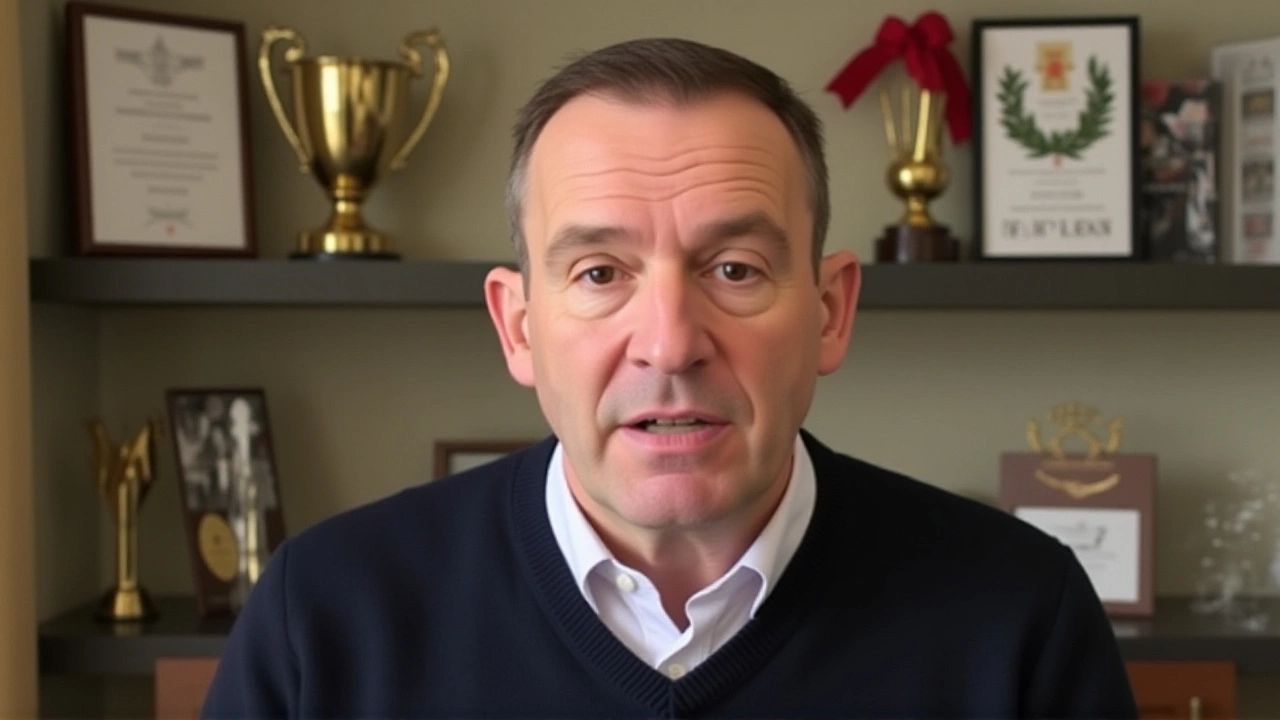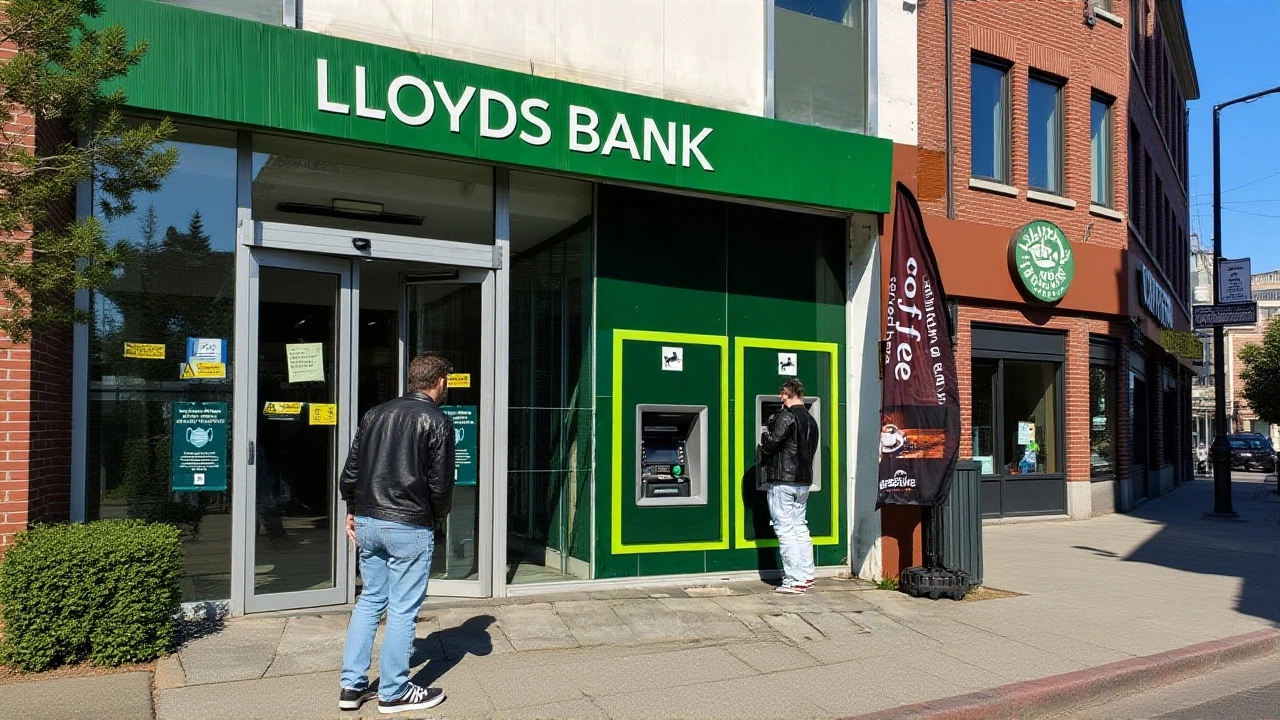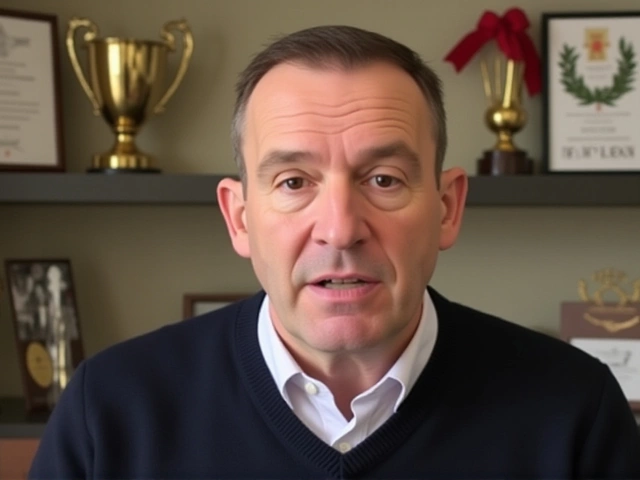- Home
- Health And Fitness
- Martin Lewis warns debit card overdrafts can cost more than credit card debt

Martin Lewis warns debit card overdrafts can cost more than credit card debt
When Martin John Lewis OBE dropped his latest financial warning on November 14, 2025, he didn’t just shake up bank statements—he shattered a long-held myth. Millions of UK consumers believe debit cards are the safer, smarter choice. Turns out, they might be paying a brutal price for that illusion. Lewis, the founder of MoneySavingExpert.com, warned that debit card overdrafts can cost more than credit card debt—even with credit cards charging an average 21.39% APR as of August 2025. The twist? Debit card overdraft fees, when crunched into annualized rates, often hit over 1,000% APR. That’s not a typo. That’s the hidden tax on convenience.
Why debit cards feel safe (and why they’re not)
It’s simple logic, right? Spend only what’s in the account. No debt. No interest. No risk. But that logic breaks down the moment you dip into an arranged overdraft. Suddenly, you’re not just borrowing—you’re paying £5 for every £10 you overdraw. And if you do that twice a week? That’s £520 a year just to borrow £100. Compare that to a credit card charging 21.39% on the same £100: you’d pay about £21.39. The math doesn’t lie. Yet most people don’t even know they’re in this trap.
“People think debit cards are responsible,” Lewis told The Independent. “But if you’re regularly overdrawn, you’re not being responsible—you’re being ripped off.” He’s not alone in this view. The Financial Conduct Authority (FCA) banned fixed daily overdraft fees in April 2020, but let the interest-based model fly under the radar. Banks now charge high daily interest instead, often without clear disclosure. Many consumers don’t realize their overdraft isn’t free—it’s a loan with teeth.
The numbers no one talks about
Here’s what’s missing from most bank statements: the true cost. Take a typical £200 overdraft used for two weeks. At a common rate of £5 per transaction, with three overdrafts a month, you’re paying £60 a month. That’s £720 a year. On a £200 balance, that’s a 360% effective APR. But some banks charge even more—up to £10 per transaction. That’s £1,440 a year for £200 borrowed. Meanwhile, the average credit card APR is 21.39%. Even with late fees and minimum payments, it’s still cheaper. The difference? Credit card users get monthly statements. Debit card overdraft users? Often get silent, surprise charges.
It’s not just about the numbers. It’s about the psychology. Debit cards feel like cash. Credit cards feel like debt. But when you’re in the red, the feeling is misleading. “It’s like thinking a $100 fine is better than a $10 monthly fee,” said a former Barclays product manager, speaking anonymously. “Banks know the emotional hook. They make overdrafts feel harmless. They’re not.”
Who’s affected—and who’s not
This isn’t about the wealthy. It’s about the 5.2 million UK adults who regularly use overdrafts, according to Moneysupermarket.com Group PLC’s 2024 data. Most are under 35. Many are gig workers or low-income earners. They’re not trying to live beyond their means—they’re just trying to survive until payday. But the system is rigged. A £100 overdraft to cover a bus fare or groceries can cost more than a month’s worth of interest on a credit card. And because debit cards don’t have grace periods, the clock starts ticking the moment you go negative.
Those with good credit scores? They can avoid this entirely. They get 0% balance transfers or low-rate credit cards. The problem? The people who need help the most are the ones least likely to qualify. It’s a financial trap with no ladder.

What Martin Lewis is really asking you to do
He’s not telling you to ditch debit cards. He’s telling you to stop using them as a loan. If you’re regularly overdrawn, he says, get a credit card—with a low APR—and use it strategically. Pay it off in full each month. Use the debit card for daily spending, but keep the overdraft empty. It’s not about being debt-free. It’s about being debt-smart.
“The goal isn’t to avoid debt,” Lewis said in a video posted to his website. “It’s to avoid expensive debt. And right now, your overdraft is the most expensive loan most people have.”
The bigger picture
This isn’t the first time Lewis has exposed hidden bank fees. Back in 2017, his campaign against bank charges led to £1.2 billion in refunds for customers. His 2025 warning follows the same playbook: simple math, real stories, and relentless clarity. The banks? They’re not changing. But more people are waking up. Since the November 14 reports, traffic to MoneySavingExpert.com’s overdraft guide surged by 340%.
And that’s the real win. Not legislation. Not regulation. Awareness.
Frequently Asked Questions
How can I tell if my debit card overdraft is costing me too much?
Check your bank’s overdraft terms for the daily or monthly fee structure. Multiply the fee by how often you use it—say, £5 per transaction, three times a month = £180 a year. Then compare that to what you’d pay on a credit card at 21.39% APR. If you’re borrowing £200 or more regularly, the credit card is almost certainly cheaper. Use MoneySavingExpert.com’s overdraft calculator for a precise breakdown.
Is it really safer to use a credit card if I’m worried about debt?
It’s safer if you pay it off monthly. Credit cards offer better consumer protections under Section 75 of the Consumer Credit Act—meaning if something goes wrong with a purchase between £100 and £30,000, the card issuer shares liability. Debit cards offer no such guarantee. Plus, with a credit card, you control the timing of repayment. With overdrafts, banks can demand repayment instantly.
What should I do if I’m already stuck in a debit card overdraft cycle?
First, stop using the overdraft. Then, apply for a 0% balance transfer credit card if you have decent credit. Transfer just enough to cover your overdraft balance. Pay it off over 12 months. If you don’t qualify, contact your bank and ask for a repayment plan—many offer interest-free arrangements for low-income customers. The FCA requires banks to consider hardship cases fairly.
Why didn’t I know about this before?
Banks don’t advertise overdraft costs prominently. The FCA’s 2020 rules removed daily fees but allowed banks to charge high interest rates without clear annual percentage displays. Most customers assume overdrafts are free or low-cost. Only 17% of UK overdraft users know their effective APR, according to a 2024 MoneySavingExpert survey. The system is designed to confuse.
Does this warning apply to everyone in the UK?
Yes—if you use an arranged overdraft on your current account. It doesn’t apply to unarranged overdrafts (which are even more expensive), or to those who never go overdrawn. But if you’ve ever had a negative balance—even briefly—you’re at risk. The warning targets the 5.2 million UK adults who rely on overdrafts monthly, many of whom are unaware they’re paying more than credit card users.
What’s next? Will banks change their policies?
Unlikely without pressure. Banks make billions from overdrafts—£1.8 billion in 2023 alone, per Bank of England data. Lewis’s warning may lead to more consumer complaints and FCA reviews, but change comes slowly. Your best move? Educate yourself, switch to a cheaper borrowing method, and consider switching banks. Some challenger banks like Monzo and Starling offer more transparent overdraft pricing with lower daily caps.

Damien Lockwood
Hi, I'm Damien Lockwood, a sports enthusiast with a deep passion for running and cycling. I've spent years honing my skills and understanding the mechanics behind these disciplines. Apart from participating in various marathons and races, I also love sharing my experiences and valuable insights through my writings. My goal is to inspire and encourage people to embrace a healthy lifestyle by engaging in physical activities they enjoy.
About
Welcome to IdentiSports UK Hub, your ultimate destination for all things running and cycling in the United Kingdom. Discover the latest news, events, and tips to help you improve your performance and stay connected with the vibrant sports community. Join us now and unleash your true potential!
